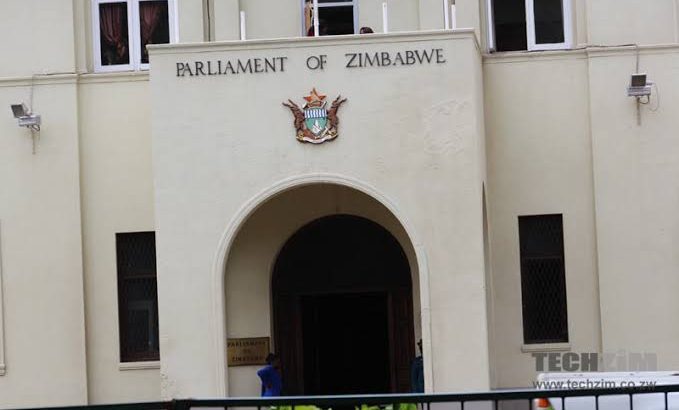
By Pepukai Chivore: Parliament Budget Office- Zimbabwe
“…And they say we have no teeth!” This blog discusses a collaboration between Parliament and the Southern Africa Parliamentary Support Trust in Zimbabwe to institutionalise more meaningful and accountable reporting to Parliamentary Committees from government institutions. Read more…
Realising information opacity from Ministries, Departments, Agencies (MDAs), the Parliament Budget Office (PBO) in Zimbabwe designed a reporting template which has been adopted and institutionalised by Parliament. Bang!! If you don’t report, or don’t provide enough information as required on the template, we name and shame! Parliament of Zimbabwe is mandated by Sections 119(3) and 299 of the Constitution of Zimbabwe (2013) to monitor and oversee all state institutions in order to ensure that all revenue is accounted for and all expenditure has been properly incurred and recorded. This is further buttressed by provisions in the Public Finance Management Act (PFMA, 2009) which compels MDAs to submit monthly and quarterly financial and accompanying reports to their respective portfolio committees.
The PBO’s intervention has assisted in the attainment of the right to social accountability which obliges the state (agent) to justify and explain its public resource management decisions and actions and to take corrective action where weaknesses are observed. This is done through openness and accessibility by the public to information about government activities especially in the use of public resources. Access to information is a fundamental human right which allows people to scrutinize the actions of their government and is the basis for informed debate by Parliament.
Parliament monitors budget implementation by scrutinizing government policies, programmes and expenditure plans in order to ensure that they are in line with legislative intent and are governed by documented policies and procedures. With technical and financial assistance from the Southern African Parliamentary Support Trust (SAPST), we developed, as the PBO, quarterly reporting guidelines for use by MDAs. The guidelines spell out the content expected in budget performance reports with particular emphasis on performance budgeting, which has been the missing component. Information on the guidelines gives Portfolio Committees adequate information and a clearer picture of how each MDA is managing public resources under its jurisdiction. The guidelines were developed after the realization that not all MDAs were complying with reporting requirements to Parliament. Where MDAs complied, the reports were mostly financial in nature with very little or no accompanying information or narratives of the performance matrix vis-à-vis set targets. This is complemented by a report tracking tool which acts as a dashboard for everyone to see who is reporting and who is obstinate.
The guide borrows heavily from the Public Service Accountability Monitoring (PSAM) rights-based approach on social accountability monitoring framework, which focuses on the entire public resource management system of the State.
The PBO goes further to assist Parliamentary Committees in analysing the reports and providing options to the Committees to ensure transparency, accountability and probity in the utilisation of funds. As a result of this intervention, there has been an increase in reporting compliance by MDAs, from 4 % (5 out of a possible 112 reports) in 2016 to 39% (41 out of a possible 105) in 2018 giving an overall compliance rate of 39%. In 2019, compliance rate stands at 68%( 30 out of a possible 44).
The analysis of reports by the PBO has also enhanced Committees’ capacity in playing their oversight role on the Executive. There has thus been an improvement in the quality and content of reports. The reports are uploaded on the Parliament website for everyone with internet access to see how MDAs are utilising public resources allocated to them. The idea behind sharing these reports is to enhance transparency, out of which an informed citizenry will develop a demand conscience that ultimately puts pressure on government to deliver.
This intervention has entrenched a culture of reporting in MDAs. As the PBO, we are also working with the supply side (MDAs) with a view to improve the quality of reporting through undertaking continuous capacity building of accountants and Finance Directors in the MDAs. We have observed and learnt from our intervention that embedding transparency practices in laws, rules and procedures sets a good framework to guide behaviour. Although this may be contested, we put forward that it is important to legislate for everything rather than leave it to the goodwill of the Executive. We have also learnt that Civil Society Organisations (CSOs) play a crucial role in oversight through a parallel process of analysing budgets and government policies. Their analysis feeds into Parliament debates as well as them seizing any opportunities for dialogue provides a firm basis for sustained advocacy for increasingly transparent fiscal policies. On the strength of such an intervention, citizens can engage duty bearers on the basis of evidence and participate proactively and effectively in governance processes.
If you want to leave your comments about the article, follow the link
